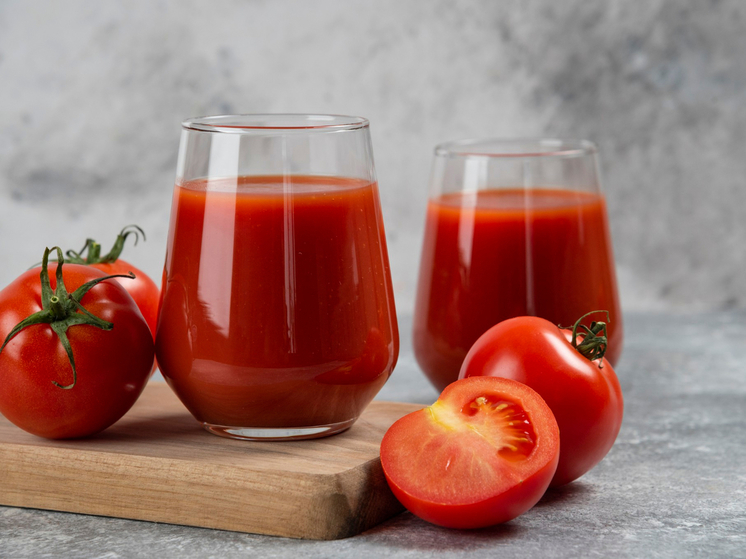Tomatoes can save a person from viral E. coli
A new study shows that tomatoes and tomato juice can help fight bacterial infections in the intestines, one of which is salmonella, the bacteria of which penetrate the human body and cause poisoning and typhoid fever.
 Photo: freepik.com< /span>
Photo: freepik.com< /span>
Fruits and vegetables are rich in antioxidants, vitamins and other compounds, two of which scientists at Cornell University in the US identified for their powerful bacteria-killing properties in a series of experiments on cells.
The research team, led by Cornell microbiologist Chongmin Song, was interested in one of the genera of intestinal bacteria — salmonella, they penetrate the intestines, often causing food poisoning. The study was published in the journal Microbiology Spectrum.
In particular, the team focused on one typhoid type of salmonella, Salmonella enterica Typhi, which can only live in humans and causes typhoid fever when it enters the bloodstream from the intestines and spreads through the gastrointestinal tract.
As with other foodborne pathogens, proper food handling and storage and access to antibiotics can help people avoid salmonella poisoning. However, typhoid remains a serious public health problem in many parts of the world where people do not have access to clean water, sanitation, or typhoid vaccines. It spreads from person to person through contaminated food and water, and children are most at risk.
In 2016, the world's first outbreak of extensively drug-resistant typhoid fever swept through Pakistan, and eight years later, infectious disease experts still fear it could lead to regional or global outbreaks if left unchecked. Malnutrition is also common in Pakistan and other countries in Asia, Africa, Latin America and the Caribbean. A 2023 study of 64 countries found that nearly half of children under 2 years of age did not consume any fruit or vegetables in their diet.
“Our main goal in this study was to find out whether tomatoes and tomato juice can kill intestinal pathogens, including Salmonella Typhi, and if so, what qualities they have that make them work,” explains Jongmin Song.
< p>Laboratory-grown sticks exposed to freshly squeezed tomato juice died within 24 hours, and not because of the acidity of the juice. The researchers scanned the tomato genome looking for genes encoding small proteins called peptides that could act as antimicrobial agents.
From four initial candidates, the team identified two antimicrobial peptides that inhibited the growth of Salmonella bacteria and even eliminated a strain resistant to the main antibiotic used to treat typhoid fever.
Finally, the researchers modeled the shape of their two lead peptide candidates and modeled their interaction with bacteria. As the modeling predicted, they destroyed Salmonella cell membranes in just 45 minutes.
In further experiments, the compounds also destroyed a strain of non-typhoidal Salmonella that causes non-fatal food poisoning.
According to the researchers, that's just only experiments on cells, so the results of the study are not a reason to consume liters of tomato juice. But it highlights the importance of public health messages that encourage people to eat tomatoes as part of a balanced diet that includes many other fruits and vegetables — as long as they are prepared using good food hygiene practices, this can help prevent illness and food poisoning.


























































Свежие комментарии